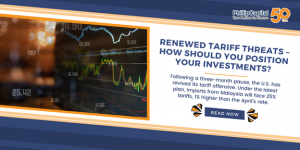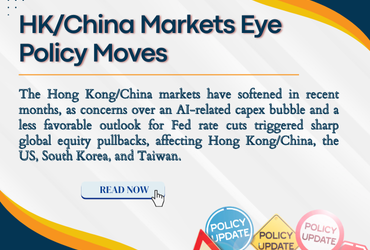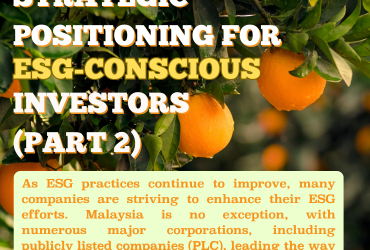
Following a three-month pause, the U.S. has revived its tariff offensive. On July 7, President Donald Trump announced a fresh wave of proposed tariffs targeting 14 countries, followed by an additional 7 countries on July 9, with implementation scheduled for August 1, 2025, via executive order. Under the latest plan, imports from Malaysia will face 25% tariffs, 1% higher than the April’s rate. These follow earlier tariffs imposed on Vietnam (20% for local goods, and 40% for transshipped items) and China (30%). Trump also announced a further 10% tariff on countries aligned with BRICS, along with a steep 50% tariff on imports of steel, aluminum, and copper. Even Brazil which ran a $6.8 billion trade deficit with the US in 2024 (meaning the US exported more goods to there than it imported from there), is now also threatened a 50% tariff from the U.S. These measures add complexity to the global trade environment and could have broader implications for industrial supply chains. See Exhibit 1 for the list of countries affected.
Exhibit 1: New U.S. tariff rate for selected countries
| Country | July Rate | April Rate |
| PHILIPPINES | 20% | 17% |
| BRUNEI | 25% | 24% |
| MOLDOVA | 25% | 31% |
| JAPAN | 25% | 24% |
| SOUTH KOREA | 25% | 25% |
| MALAYSIA | 25% | 24% |
| KAZAKHSTAN | 25% | 27% |
| TUNISIA | 25% | 28% |
| SRI LANKA | 30% | 44% |
| IRAQ | 30% | 39% |
| LIBYA | 30% | 31% |
| ALGERIA | 30% | 30% |
| SOUTH AFRICA | 30% | 30% |
| BOSNIA AND HERZEGOVINA | 30% | 35% |
| INDONESIA | 32% | 32% |
| SERBIA | 35% | 37% |
| BANGLADESH | 35% | 37% |
| THAILAND | 36% | 36% |
| CAMBODIA | 36% | 49% |
| MYANMAR | 40% | 44% |
| LAOS | 40% | 48% |
Source: The White House, compiled by PCM, 10 July 2025
For the case of Malaysia, the revised tariff rate has been raised to 25%, up from the earlier 24% announced under the “Liberation Day” tariff schedule on April 2. While negative in isolation, Malaysia still fares relatively better than key regional peers such as Indonesia and Thailand, which now face steeper tariffs of 32% and 36%, respectively. In contrast, Vietnam stands out with a clear advantage—its revised tariff rate has been lowered to 20%, down significantly from the initial 46%. This strengthens Vietnam’s position as a preferred hub for production and exports, especially in light of the ongoing relocation theme.
That said, all impacted countries, including Malaysia, retain the option to negotiate their tariffs down to a baseline rate of 10%. In this context, we interpret the latest executive order not necessarily as an outright escalation, but rather as an extension of the negotiation window beyond the initial July 9 deadline. The intent appears to be to extract further concessions through bilateral talks ahead of the August 1 implementation.
Investment Strategy
In light of ongoing macroeconomic uncertainty, we recommend reducing portfolio beta by focusing on low-volatility, resilient stocks to better manage downside risks. Investors should consider reallocating away from high-risk positions—particularly those lacking near-term recovery catalysts—and pivot toward defensive and resilient sectors with stable earnings and strong cash flow profiles. While large caps offer stability, selective exposure to small caps remains attractive, especially for companies with strong fundamentals, structural growth tailwinds, and positive momentum heading into 2H 2025.
We maintain a cautious stance overall and continue to favour diversification as a key risk management strategy. Areas of focus include domestic-oriented companies, construction, selected consumer names, defensive plays, and consistent dividend yielders. We continue to like Malaysia for the following catalysts:
- Resilient economic fundamentals – 4-4.5% GDP growth remains achievable in 2025, supported by low inflation and a fully employed labour market
- A steady political environment reinforced by clear policies and strategic masterplans (NETR, NIMP, NSS and etc)
- Accommodative monetary policies – BNM cut OPR to 2.75% in July 2025, which remains supportive.
- Malaysia is still a net beneficiary from US trade war – seeing more enquiries for industrial land
- Rising FDI & DDI Momentum – Shifts in the semiconductor supply chain are occurring in tandem with emerging structural growth themes such as data centres, AI, and renewable energy.
- Domestic market liquidity remains strong, with investors holding high levels of cash. Elevated cash on the sidelines suggests ample dry powder waiting to be deployed.
- Low foreign shareholding. Such strong foreign outflows YTD, should mean reduced selling pressure going forward
- Strong MYR given the dollar weakness and strong fundamentals locally
- Other catalysts: JB-SG SEZ, HSR
Phillip Capital Malaysia and our offerings
We reaffirm our belief that there are still opportunities in the market, and we maintain a discerning approach in choosing high-quality stocks for our portfolio. However, it is crucial to exercise caution and carefully select investment options to ensure the best risk-adjusted returns. By taking a vigilant and discerning approach, investors can potentially reap the benefits of the current market opportunities while minimising risks.
A noteworthy avenue for investors seeking diversification in their portfolio is through PhillipCapital Malaysia. PhillipCapital Malaysia offers multiple private mandate services managed by professional fund managers. By leveraging PhillipCapital Malaysia’s private mandate services, investors can enhance their resiliency, optimise portfolio performance, and navigate the complexities of the market with confidence.
We also offer both conventional and Shariah-compliant options to cater to the needs of all investors. For Malaysia’s mandates, we like:
- PMART/PMA Dividend Enhanced and/or PMART/PMA Dividend Enhanced ESG
Our PMART Dividend Enhanced and PMA Dividend Enhanced is an income-driven portfolio focused on high dividend-yielding equities. We apply the Dog of the Dow approach, screen and select top market cap stocks to minimise risk and ensure consistent performance. The portfolio is an equal weighting portfolio which reduces concentration risk and provides similar exposure to all clients, both initially and after rebalancing. We offer both conventional and Shariah investment options to cater to the diverse needs of our investors. Click here to learn more. We recently also introduced PMART/PMA Dividend Enhanced ESG Mandate as we remain dedicated to investing in ESG stocks given their stronger valuation and profitability.
- PMART/PMA ESG
Phillip Capital Malaysia offers discretionary portfolio that invests in stocks with high ESG ratings from the F4GBM and F4GBMS Indices, namely PMART and PMA ESG. There are both conventional and Shariah options available. To explore the companies in which both Conventional and Shariah ESG mandates invest, you can refer to the provided link.
- PMART/PMA Blue Chip and Opportunity
Our Blue-Chip portfolios primarily allocate our investments towards companies with large market capitalisations, while the Opportunity portfolios predominantly invest in companies with smaller market capitalisations. We also offer both conventional and Shariah-compliant options to cater to the needs of all investors.
Please click on the link to learn more or email us at cse.my@phillipcapital.com.my if you require any further information.
Disclaimer
The information contained herein does not constitute an offer, invitation, or solicitation to invest in any product or service offered by Phillip Capital Management Sdn Bhd (“PCM”). No part of this document may be reproduced or circulated without prior written consent from PCM. This is not a unit trust or collective investment scheme and is not an obligation of, deposit in, or guaranteed by PCM. All investments carry risks, including the potential loss of principal.
Performance figures presented may reflect model portfolios and may differ from actual client accounts’ performance. Variations in individual clients’ portfolios against model portfolios and between one client’s portfolio to another can arise due to multiple factors, including (but not limited to) higher relative brokerage costs for smaller portfolios, timing of capital injections or withdrawals, timing of purchases and sales, and mandate change (e.g., Shariah vs. conventional). These differences may impact overall performance.
Past performance is not necessarily indicative of future returns. The value of investments may rise or fall, and returns are not guaranteed. PCM has not considered your investment objectives, financial situation, or particular needs. You are advised to consult a licensed financial adviser before making any investment decisions.
While all reasonable care has been taken to ensure the accuracy and completeness of the information contained herein, no representation or warranty is made, and no liability is accepted for any loss arising directly or indirectly from reliance on this material. This publication has not been reviewed by the Securities Commission Malaysia.






